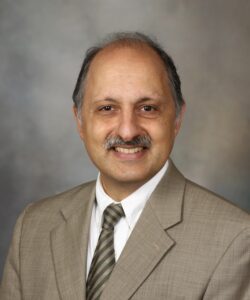
I am honored to serve as President of the American Neurogastroenterology and Motility Society (ANMS) and look forward to working alongside our dedicated staff, councilors, and officers to advance our mission—on behalf of our patients, our members, and our industry partners.
The ANMS strives “to be the multidisciplinary society leading the field of neurogastroenterology and motility by fostering excellence in research, education, training, and patient care” through these initiatives and much more:
- Education. For 45 years, our annual postgraduate course has been the most respected and widely attended neurogastroenterology teaching program in the United States. This course is held during our biennial Scientific Meeting, which features original research, and the biennial Clinical Practice Course, which is scheduled for August 7-9 2026. At our 2025 meeting, the speaker engagement and audience participation, even in the final session, reflected the strength and vitality of our community. The Federation of Neurogastroenterology and Motility holds a biennial meeting in the same year as our Clinical Practice Course. We encourage everyone to attend the next meeting in Bogota, Columbia between November 4th – 7th 2026.
- Unique programs for trainees and young investigators. Every annual meeting offers a 1-day long specialized training in Motility testing for fellows. Every biennial Scientific Meeting offers a Young Investigator Program for clinical and basic scientists pursuing academic careers. Our one-month virtual Clinical Training Program equips gastroenterology fellows with the nuts and bolts of managing patients with neurogastroenterology diseases. This competitive program has been invaluable, no priceless, to GI programs and practices that otherwise would have access to rigorous training in motility.
- Commitment to research. Supporting research remains our top priority. We have a longstanding tradition of investing in early-career investigators. Building on that commitment, we now also provide bridge funding to help sustain researchers through periods of funding uncertainty.
- Advocacy and Influence. ANMS represents our field at the National Institutes of Health, Food and Drug Administration, American Medical Association, and other organizations. These organizations recognize that we provide the imprimatur for everything related to neurogastrogastroenterology. Indeed, most neurogastroenterologists in the United States are members of the society.
- Collaboration and Publishing. We work closely with the European Neurogastroenterology and Motility Society on systematic reviews and practice updates and we proudly support our joint journal Neurogastroenterology and Motility.
- Practice Support. We provide patient education materials, coding guidance, and other resources to support your practice.
- Sponsor Engagement. We are grateful to our industry partners for their support and their role in delivering high-quality educational content to our members.
We face ongoing challenges. Researchers confront existential threats. Cognitive and academic gastroenterology are under pressure from increasing RVU demands and industry sponsors contend with declining reimbursement. In response, ANMS is expanding its membership, evolving its meetings to engage a wider audience, and strengthening its support for research.
If you’re not yet a member, or if your membership has lapsed, I warmly encourage you to join or renew today. If you’re already a member and have questions—or fiscally responsible ideas to help advance our mission—please don’t hesitate to reach out to me directly.
None of this would be possible without the hard work of our staff, councilors, officers, and the ongoing commitment of our sponsors – my sincere thanks to all!
Sincerely,
Adil E. Bharucha, MBBS, MD
